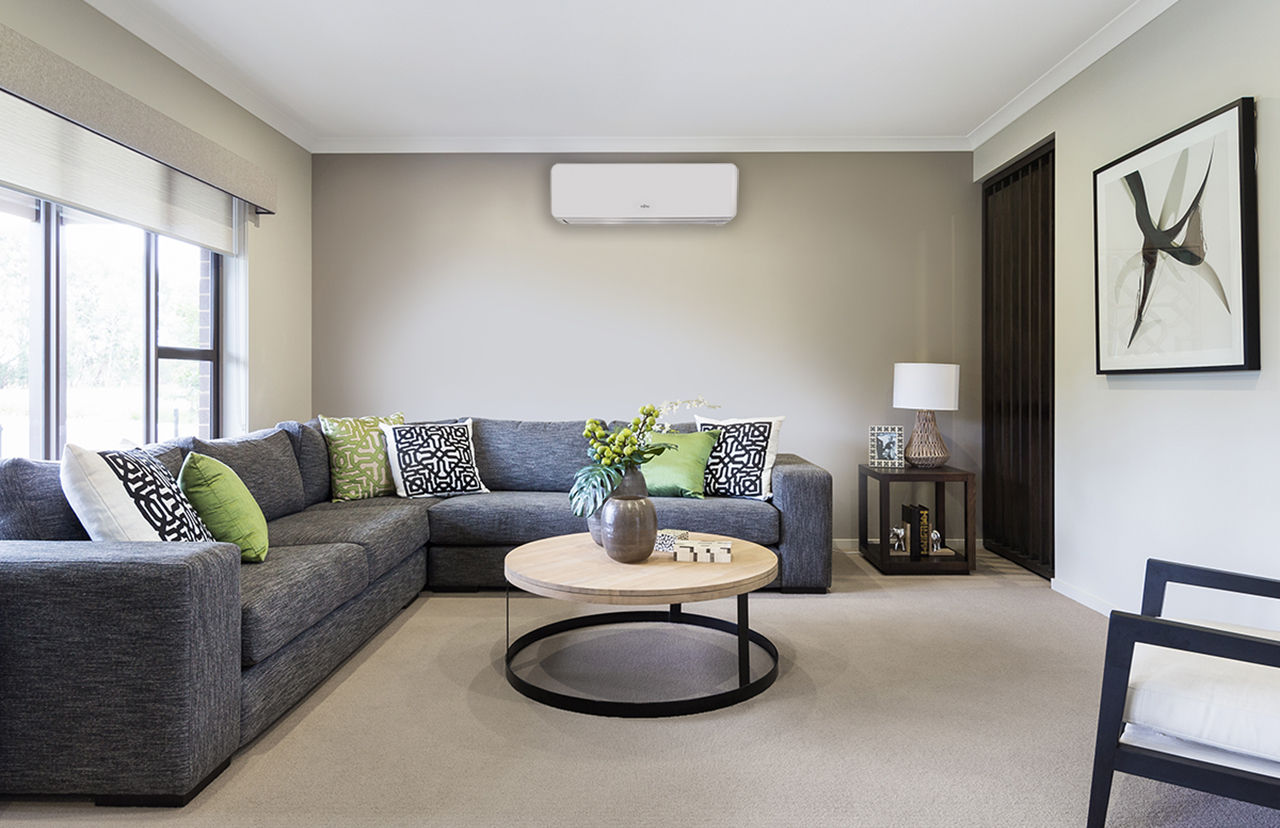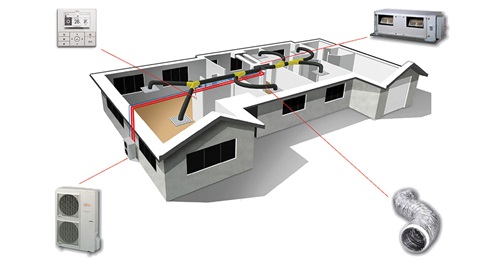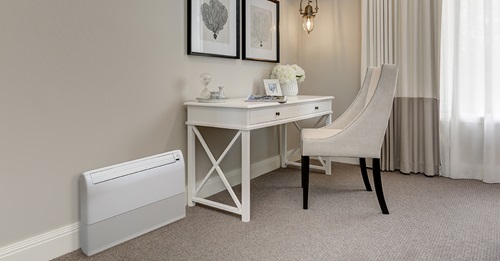Cost of living considerations when upgrading or replacing your airconditioner

With the current cost of living crisis in Australia, keeping your home cool in summer and warm in winter is becoming more and more difficult. However, energy efficient air conditioners may offer the solution, providing increased levels of comfort and a considerable reduction in energy bills.
Like all essential appliances, air conditioners require ongoing care and maintenance to continue performing at their best. Depending on the symptoms they are displaying, you may need to consider repairing or replacing a residential aircon in your home.
Here’s how you can determine whether you need to replace an air conditioner, or simply have it serviced or repaired:
Signs your air conditioner needs repair
If your air conditioner is displaying any of these symptoms, it may need to be professionally serviced by a qualified air conditioning technician:
Warm air instead of cool air: If your air conditioner is blowing warm air whilst in cooling mode, it could be a sign of low refrigerant levels, clogged filters or a failing compressor.
Strange noises: Unusual noises such as hissing, banging, or rattling could indicate a problem with the motor, fan or ductwork.
Poor airflow: If the airflow from your air conditioner vents is weak, it may be due to dirty air filters or a clogged air duct. Simple maintenance could solve the problem before any damage is caused.
Uneven cooling: If you have a whole home ducted system and some rooms are cool and others are warm, it could be a sign of ductwork issues or a refrigerant leak.
Increased energy bills: A poorly maintained air conditioner may consume more energy, resulting in higher energy bills. If you’ve noticed an unusual spike that isn’t related to current climate conditions, it might be worth having a technician take a look.
Bad odours: Foul odours coming from your air conditioning unit could indicate the presence of mould or bacteria, which could be harmful to your health.
Poor indoor air quality: Sneezing, itching, or watery eyes can all be symptoms of poor air quality in your home, which could be caused by filters that need to be cleaned or replaced.
Leaks: Puddles on the floor or wet streak marks running down the walls can indicate your air conditioner has a leak which can be caused by a clogged drain line, blocked filters or a damaged pipe or coil.
When is it worth replacing air conditioners in my home?
There are several reasons why you may need to consider an air conditioner replacement. Ideally, you’ll want to replace an air conditioner before the peak of summer or winter hits. However, if your current system is not behaving as expected, it is best to have it checked regardless of the time of year. Your technician will know whether it is more cost-effective to repair the unit or replace an air conditioner with a more energy-efficient system.
Age: While there is no set timeframe for how long air conditioners last, the average lifespan of a unit is 10 to 15 years. If your air conditioner is approaching this age range, it may be time to consider a replacement.
Frequent repairs: If you find yourself having to repair your air conditioner frequently, it may be more cost-effective to replace it.
Inefficiency: Air conditioners that consume more energy without producing effective cooling as a result can be a reason to explore newer, more efficient models.
Uncomfortable temperatures: If your air conditioner is unable to maintain comfortable temperatures in your home, it needs to be seen by an air conditioning specialist to determine the cause. The unit installed may have been too small to suit the size of the room or repairs may be required. It may be more cost effective to replace an air conditioner with a more energy efficient unit.
Is my air conditioner due for an upgrade?
There are many reasons to upgrade your air conditioning unit. Here are a few to consider:
Improved energy efficiency: Upgrading to a newer, more energy-efficient air conditioning unit can have a positive impact on the environment, and help take the sting out of the cost of living crisis by reducing your energy bills. Some states offer rebates for more energy-efficient homes.
Better indoor air quality: Upgraded air conditioners often have advanced air filtration systems that can improve the air quality in your home.
Increased comfort: A newerair conditioning unit can help maintain more consistent temperatures in your home, leading to greater comfort. Similarly, if your home was built for a family of four, but your kids have recently moved out and fewer rooms are occupied, a change in zone design may be a helpful addition to your split system aircon or ducted air conditioner. Switching to a unit with Smart Climate Control compatibility can also drastically improve effectiveness and efficiency.
Enhanced technology: Newer models may offer features such as programmable thermostats, remote control, smart home integration and home sensors for efficiency. For example, Fujitsu General’s smart energy technology enables full climate control using the the anywAiR app and the Ducted Controller. allows for remote Wi-Fi control.
Home value: More efficient air conditioning units can enhance the value of your home, making it more attractive to potential buyers or renters.
General home improvements: Home makeovers often go hand-in-hand with newer, more modern styles and features.
The benefits of an Air Conditioning Replacement
There are many benefits to replacing air conditioners that are showing signs of wear, which may help to offset the initial purchase price. They include:
Improved Efficiency and Lower Operating Costs: Advancements in technology, such as zoned ducted air conditioners and motion detection sensors, enable you to only heat or cool desired parts of your home. These features can lead to reduced operating costs of ducted and split system air conditioners.
Smart Home Compatibility: With Fujitsu General's anywAiR technology customers can control their air conditioning units from anywhere with the convenience of smart AC functions, including: smart scheduling; geo-fencing; climate react; and voice control* via Siri, Alexa, and Google Assistant.
Enhanced Comfort and Air Quality: Not only will a replacement air conditioner boast improved performance over your existing unit, it will be equipped with advanced filtration systems that help to remove airborne contaminants from your home.
How to choose between repairing, upgrading and replacing an air conditioner
Choosing between repairs to your existing system and an air conditioner replacement is often a difficult decision. Fujitsu General recommends you complete the following steps in order to decide which option is right for you:
Consult with Air Conditioning Experts: Reaching out to a Fujitsu General technician helps you gain a better understanding of any inefficiencies or issues with your current air conditioning system, and what the best course of action is to replace it.
Calculate the Return on Investment: Weigh up the upfront cost of replacing an air conditioner against the long-term energy savings, increased comfort and improved air quality of a new unit.
Consider Personal and Property Concerns: Tailor your decision by factoring in your personal situation, any potential value gains to your home by replacing air conditioners that are already installed, and your long-term plans for your property.
Why Choose Fujitsu General For Your Air Conditioning Replacement?
Fujitsu General offers a wide range of ducted, bulkhead and wall unit air conditioners that can ease cost of living pressures in Australia.. Replacing air conditioners with Fujitsu General units guarantees you a long-lasting system equipped with the latest technology and made using quality components. Our air conditioners also come with the peace of mind of a 5 year warranty, and an efficient after-sales support program for maintenance and repairs.
For further energy efficiency tips, or to find out more about how Fujitsu General can help you with energy-efficient air conditioner replacements, contact us today.

.tmb-tmb420.jpg?sfvrsn=5c4be2e1_1)


